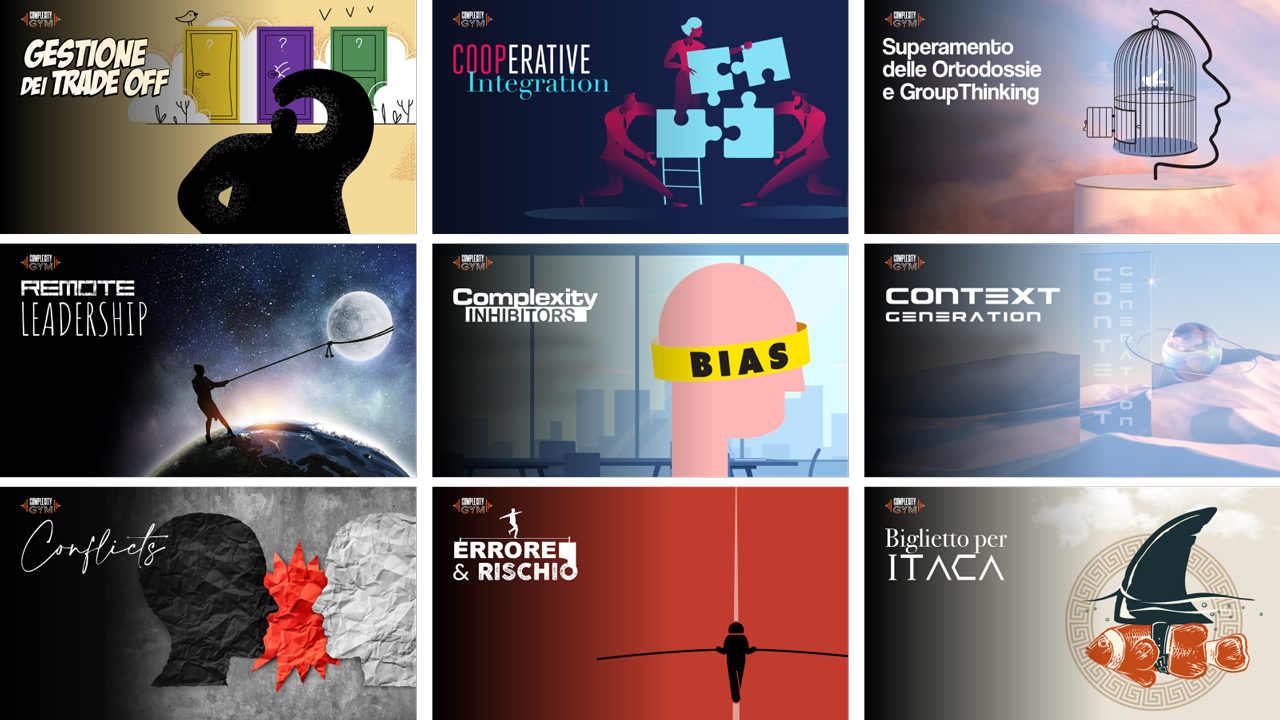Complexity Gym
Various companies facing highly complex developmental challenges have embraced an approach of “immersing” their figures of value in a coaching pathway that teaches thought and action within complexity.
Change management
Culture change
Empowerment soft skills
Immersive learning
Management complexity
People Management
Wise leadership

Goals
- Allowing talent to evolve by facing up to complexity
- Accelerating familiarity with oneself and one’s role within the context of corporate challenges and giving the company itself a greater awareness of its talents
- Activating a deliberate development pathway designed along a trajectory of existing talents rather than one of weaknesses
- Building a vision, and an expectation of development to accompany it
- Provide structure but also develop high-value figures to build up the leadership of the near future
Content
Complexity Gym is a pathway designed together with a big multinational corporation in the energy sector, developed with various applications. The approach puts forward an unconventional challenge: a learning pathway that builds circularity in the reciprocal “company-talent” knowledge, integrating dedicated development tools with training activities.
Content
The methodology borrows from the observation of the immediate future, which suggests an acceleration in the introduction of new paradigms. The growing complexity demolishes the classic development model built on linear pathways, and “positioning” the potential of a resource and “positioning oneself” is an increasingly challenging exercise.
Complexity Gym shifts the interpretation of complexity, facilitating experimentation through innovative immersive activities such as The Cage (a psychological thriller that unfurls through participants’ interaction), SHED65 (a co-production with SDA Bocconi of an experience based on leadership in situations of uncertainty) and the use of leadership accelerators such as the “Kube” simulations.
Content
The immersive activities are introduced as part of a flow that opens and closes with personal interviews and that allows three stages of detailed study (individual decisions from a choice of 10 subjects, including Managing Trade-offs, Context Generation, Storytelling, Trial & Errors) into developing management in complexity.
The end of the process includes receiving a personal “experience book” that offers an honest assessment of the individual’s progression through the pathway and indicates development drivers.
